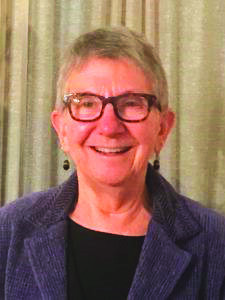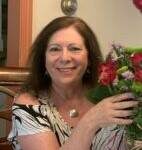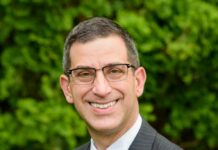
Rabbi Linda Holtzman
Parshat Vayikra
Vayikra is a strange Torah portion. It opens with real power: God called to Moses. A call from God is no small thing!
One would expect the most crucial message to follow. Imagine being in the middle of the desert, having accepted the Torah at Mount Sinai, and wandering in a rocky, barren terrain with a tired and challenging people. And suddenly, God calls.
I imagine Moses lifting his head to take in the moving, earth-changing words that will follow. Then, what follows is detail upon detail about sacrifice: What kind of animals or grain should one give for what kind of situation, what should one do with the blood of those animals, how should one handle the meat. Hardly lofty or exalted material!
In her powerful article, “Slippery with Blood,” Rabbi Janet Marder discusses this very problem. Just when we want to be pushed into being a prophetic people, calling out for justice, we are given details about how to be a priestly people and learn the intricacies of sacrificial offerings. Why do we need this, she asks, when it would seem that the other would be the far more powerful call?
I find Marder’s answer compelling, particularly for our time: “If human beings were gentle and benevolent by nature, we might not need the stern, disciplinary teachings of the priesthood. The Torah’s insight is that priestly service is what our homicidal proclivities demand and deserve. So the descendants of Pinhas, a family whose origins are murderous and full of rage (see Numbers 25:1-14), are taught to (re)direct their zealous energies to the service of God. They turn from uncontrolled aggression to the discipline of ritual slaughter, hedged about with myriad laws and regulations.”
We live in a time when the killing of innocent people is happening in so many parts of the world, both locally and across the globe. This Torah portion demands that we hear God’s call to do everything we can to end that killing; to keep our desires of murder or vengeance contained; and to direct our energy to end unwarranted killing wherever we see it.
The Israelites are being commanded to direct their violent impulses toward the narrower, self-contained sacrificial system; we are being told to direct ours to stand up against destructive violence whenever we see it.
In Philadelphia, we see that gun violence is out of control. Every week, the number of people being killed by guns is higher and higher. Yet our local officials try the same things, putting money into the police and related programs that have made no difference.
We need to demand that our mayor and other officials pay attention to God’s call and reach out for new ways to combat the epidemic of gun violence.
There are programs that have been successful in other cities that we can try. There is money that can be diverted from heightened policing to finding ways to bring trained counselors and social workers into the system to de-escalate potentially violent situations and to lessen the likelihood that people will end up dead. There are so many things that our city can try; it starts with listening to the call.
And in Israel and Palestine?
There are more and more Jewish groups calling for a cease-fire in Gaza, demanding that the killing and starving and destroying the lives of innocent Gazan people be stopped. If we listen to the values that underlie this Torah portion, we need to demand a release of all hostages, demand that food and medical aid be allowed to reach the people in Gaza and demand that everyone come to the table for political negotiations instead of increasing the violence.
We are all furious about the ferocious attack on Oct. 7, yet now that there are more than 30,000 Gazans dead, it’s clear that this war is not leading to any just outcome. Vayikra’s call must be listened to.
We enter the book of Vayikra with a call, God’s call. May we enter if deeply and fully. May we not let our desire for revenge, or our own deep anger and pain, limit our ability to hear the call.
Whether here in Philadelphia or in Israel and Palestine, violence needs to be checked and limited. Then this call will resonate for our generation and for generations to come.
Linda Holtzman is the director of student life at the Reconstructionist Rabbinical College and the rabbi of the Tikkun Olam Chavurah. She is also the director of the Reconstructionist Chevra Kadisha of Philadelphia and a member of Rabbis for Ceasefire. The Board of Rabbis of Greater Philadelphia is proud to provide diverse perspectives on Torah commentary for the Jewish Exponent. The opinions expressed in this column are the author’s own and do not necessarily reflect the view of the Board of Rabbis.





